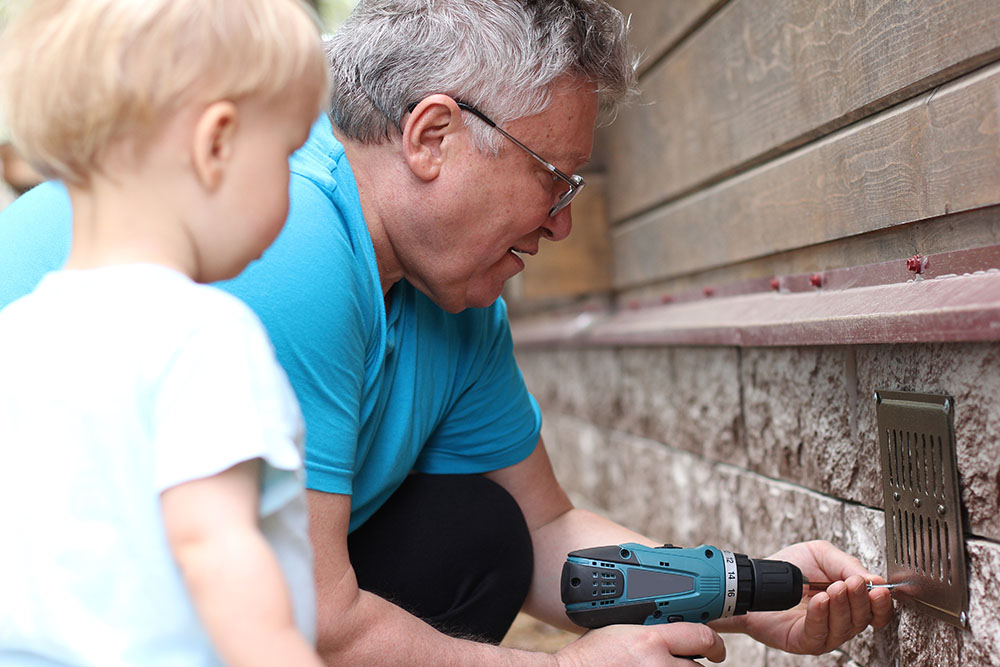Dealing with Common Issues
Children who have been abused or neglected
Unfortunately, many children are in kinship care because they have been abused or neglected by their parents. In 2018 an average of 5,820 children were in family foster care in the state of Oregon. Of those, 49.6% (about 2,888 children) were placed with relatives.
Foster care in Oregon
You may not immediately know if the child you are caring for has been abused. Abused and neglected children often love the person who is hurting them because it is someone they know well and depend on. Therefore, children are sometimes hesitant to reveal abuse out of fear of getting the person in trouble. Another reason children may not disclose abuse is because their abuser has frightened or threatened them. Remember, if you are a Department of Human Services (DHS) certified foster parent or a certified day care provider, you are required to report abuse.
A child who has been abused may start talking to you about it, and hearing this can be difficult. Be very sensitive and listen carefully when a child is talking to you about abuse; keep in mind that it is very difficult for the child to talk about being abused. This is especially hard for children who have been sexually abused.
How do I respond when a child reports abuse to me?
Tell the child that you believe him or her and that you are going to contact people who can help. Respect the privacy of the child. The child will need to tell the story in detail later, so don’t press the child for details.
Remember, you need only suspect abuse to make a report. Don’t display horror, shock or disapproval of the parents, child or situation. Don’t place blame or make judgments about the parent or child.
Sexual abuse can affect a child’s development and trigger inappropriate behaviors. Because most sexual assault victims knew their abuser, children can be profoundly affected around issues of trust, love and security. Sometimes the abuser is someone in their own family.
The effects of incest can be distressing to every person within the family. If you are caring for a child who has been sexually abused, you must establish family rules for everyone’s safety and protection. The effects of sexual abuse can be traumatic. Be sure to seek help immediately for yourself, your family and especially the child.
Children affected by domestic violence
All children are affected when there is violence in their home, regardless of whether or not they have been physically abused. Children who witness violence in their homes are often as traumatized as those who are directly victimized.
Some common behaviors exhibited by children exposed to violence include sleep disturbances, separation anxiety, worry about a parent’s safety, changes in behavior, intrusive thoughts or memories about the violence, and increased physical complaints.
These can include things like headaches, stomachaches, vague complaints and body aches. In addition, a child’s ability to concentrate and focus on and carry out tasks — particularly in school — may be compromised.
Unlike physical abuse, where you might see bruises, it can be difficult to see the effects of family violence. If you suspect the child you are caring for has been exposed to domestic violence, you may want to seek counseling support.
Drug-and-alcohol-affected children
Many families experience the effect of a family member’s abuse of drugs or alcohol. In 2018 alcohol and drug use represented the most common family stress factor involved in 42.5% of Oregon child welfare cases. Parents who have become addicted to a substance may show less interest in the well-being of their children because the primary focus of their life has changed from their children to substance misuse. They may deny substance abuse even though you and other family members and friends know they are using. This can be painful to observe, and many family members feel helpless to intervene.
Although people can become addicted to many types of substances, the most commonly abused include alcohol, marijuana, prescription medications, cocaine, methamphetamines, and opiates. Any of these substances can become destructive to individuals and families when misused.
Children whose parent(s) is deceased
One of the most painful situations a relative caregiver can face is helping a child deal with the death of a parent. There are no easy answers, but there are ways to help your relative child through the grieving process. It is natural for your relative child to feel deep sadness, loss, fear and even anger. Talking — and crying — can help. Many children need and can benefit from counseling, a support group or other special programs for children who have lost parents.
In addition to allowing your relative child to grieve, be sure to let yourself grieve as well. You have also experienced a loss, especially if the parent who died was your child. Be sure to seek support for yourself, either from friends, support groups or counseling. It is good to be honest with your relative child about the sadness you are feeling, but try not to use him or her as your support system.
Help your relative child remember, but also heal from the trauma. Your relative child may find comfort in making an album, writing stories or any other activity that helps keep the parent real and remembered. Don’t worry if many memories are sad ones, but attempt to integrate good memories of their parent(s).
Children whose parent(s) is incarcerated
When parents are arrested and put in jail or prison, children are often times scared, confused, and upset. The majority of these children live with another parent or relative during their parent’s incarceration. One way to help young children understand this situation is to explain that parents can be put into “time out” too. The number of women in jails and prisons has grown exponentially over the past decade. Because women are usually the primary caregivers for minor children, kinship care of incarcerated parents’ children will likely continue to grow.
Although it may be tempting to cut off contact with the child’s incarcerated parent, this is usually a mistake. More than ever, your relative child will be struggling with feelings of loss, fear for the parent, and shame. Research also indicates that inmates with strong family ties and support networks are much more likely to succeed upon release.
Children with incarcerated parents face unique circumstances. Their parents are often housed in prisons far from their home, making it difficult to maintain contact. The parent’s re-entry and reunification with his or her children can also be challenging.


